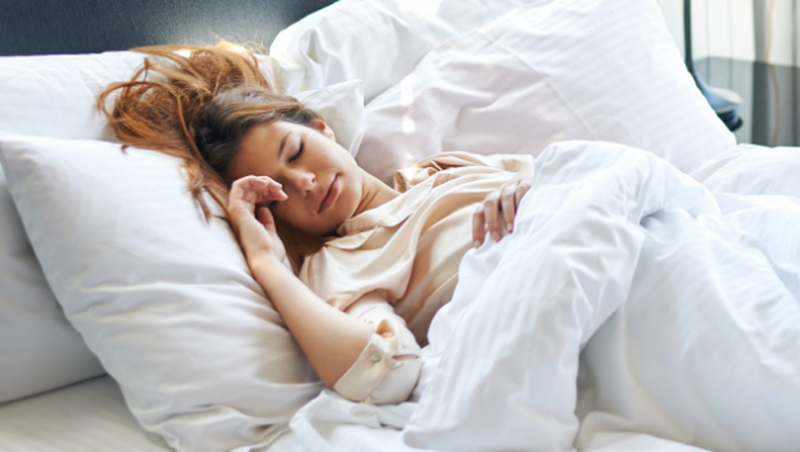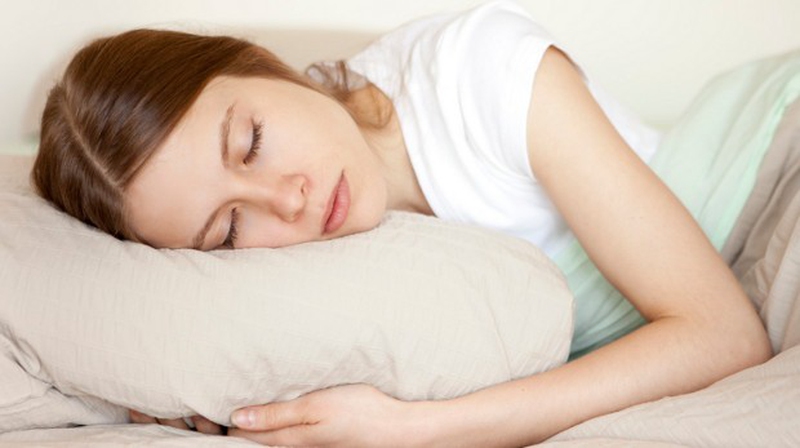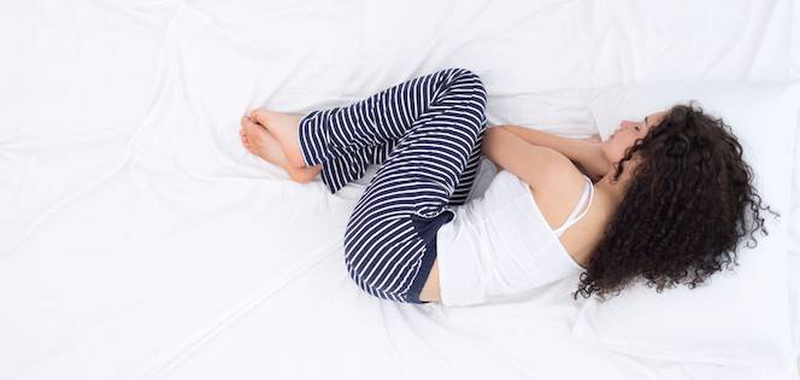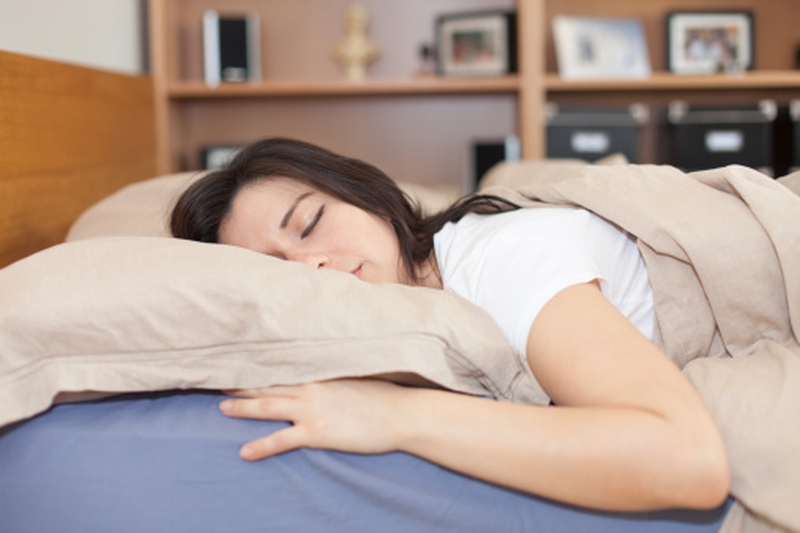Getting the right amount of sleep every night is essential for maintaining a healthy life from body to mind. While we all know we should be getting eight hours of sleep each night, this is something that most people find difficult to do. There are many reasons why people do not get enough sleep from diet, lifestyle and the position you sleep in. While it might take some more time to change some of the habits that lead to restless nights, choosing the best position to sleep in can be done easily to ensure a better night's sleep.
What Is the Best Sleeping Position?
The best position you should be sleeping in is one your back. This position keeps your spine, neck and back in a comfortable neutral position. It will keep you from putting extra pressure on these areas which will result in you feeling less pain as you sleep and when you wake. If you often suffer from acid reflux, this position is also ideal. To help reduce acid reflux symptoms better, you want to keep the head elevated and supported so that the stomach remains below the esophagus. This will help prevent acid or food from coming back up from the digestive tract.
If you have sleep apnea this can be a dangerous position to sleep in, however. Sleeping on your back can cause the breathing tubes to be blocked by the tongue which can also make snoring more of a problem as well.
What About Other Sleep Positions?
Sleeping on your side
A majority of people sleep on their side where the legs and torso are straight. This position is great for those who snore, have sleep apnea, suffer from acid reflux. This sleep position keeps the spine elongated which results in less back and neck pain as you sleep.
This position can, however, put pressure on the stomach and lungs as well as other organs that are located on the side you are sleeping on. This position can also cause numbness to the arms which may have a negative effect on the nerves and muscles. Sleeping on your side may not be the best position to sleep because you will also put more pressure on your shoulders, leaving the neck more constricted. Another unfortunate effect from sleeping on your side is that more wrinkles may be shown in the face.
Sleeping in fetal position
This sleep position is a variation to side sleeping. In this
While this may be one of the most popular positions to sleep in, there are a few downfalls. Sleeping in a fetal position can restrict the airways which can result in feeling pain when you wake. This position can also cause more pain for those who suffer from arthritis. If you feel pain in the joints, consider placing a pillow between the knees before you sleep and try not to tuck the chin in towards the chest.
Sleeping on your stomach
Not many people chose to sleep on their stomachs. Those with sleep apnea or who snore while they sleep may find this position can help with these sleep troubles. If you have digestive issues, this can also be a beneficial position.
However, sleeping on your stomach is actually not the best position to sleep. This position will flatten the spine, resulting in more lower back pain. You also put more strain on the neck since you will sleep with head facing one direction.
Other Tips to Achieve a Sound Sleep
Avoid caffeine, tobacco products, and alcohol. All these products can act as stimulants which will make it more difficult to fall asleep or stay asleep.
Make your room into a more peaceful sleep environment. Block out light using an eye mask or hanging curtains over the windows, use earplugs to block out unwanted noise and keep your room cool.
For an hour before bed, get into the habit of doing a bedtime routine. You want to avoid stressful activities and instead do things that will help relax the mind and body like taking a bath, meditating, reading, or writing.
Do not force yourself to sleep if you are not actually tired. Trying to sleep when you are not tired will only result in more frustrations and cause you to stay awake longer. Instead, if you are unable to fall asleep within twenty minutes, then get up and do something relaxing until you feel tired enough to sleep.
Turn your clock away from you when you sleep. Starring at the time as you are trying to fall asleep can cause more stress and keep you from sleeping.
Use natural light to keep your sleep-wake cycle balanced. In the morning the first thing you want to do is to let in the sunlight. During the day, try to take a break to get out in the sun which will help keep you from feeling tired.
The best position to sleep in can help you get a better night's sleep, and you want to get the proper sleep consistently. Having a consistent sleep schedule will help you get the right amount of sleep you need each night. Go to sleep and wake up at the same time each day, including the weekends, so you set your internal clock to get a good night's sleep every night.
If you need to take a nap, take it take it before 4 pm. Napping later in the day will disturb your sleep at night which can be why staying asleep for a full 8 hours seems more difficult.
Eat last meal hours before your bedtime. Eating too close to the time you want to go to sleep can make falling asleep more difficult and cause digestive issues.
Hydrate yourself before going to be. If you find yourself waking up regularly in the night because you are thirsty, be sure to drink a tall glass of water before you are ready for bed.
Workout out in the mornings or no later than three hours before you want to sleep. Exercising can help you sleep better, but it has to be done early enough since it does stimulate the body and helps activate the brain.
Stick with your routine. Keeping a regular sleep routine will help you get a more restful night's sleep. But, if you see that you have been consistent with your routine for a while and you still have poor sleep quality, it may be time to talk to you doctor to rule out narcolepsy, sleep apnea or any other health problems that could be cause you to sleep less.




View All Comments /Add Comment